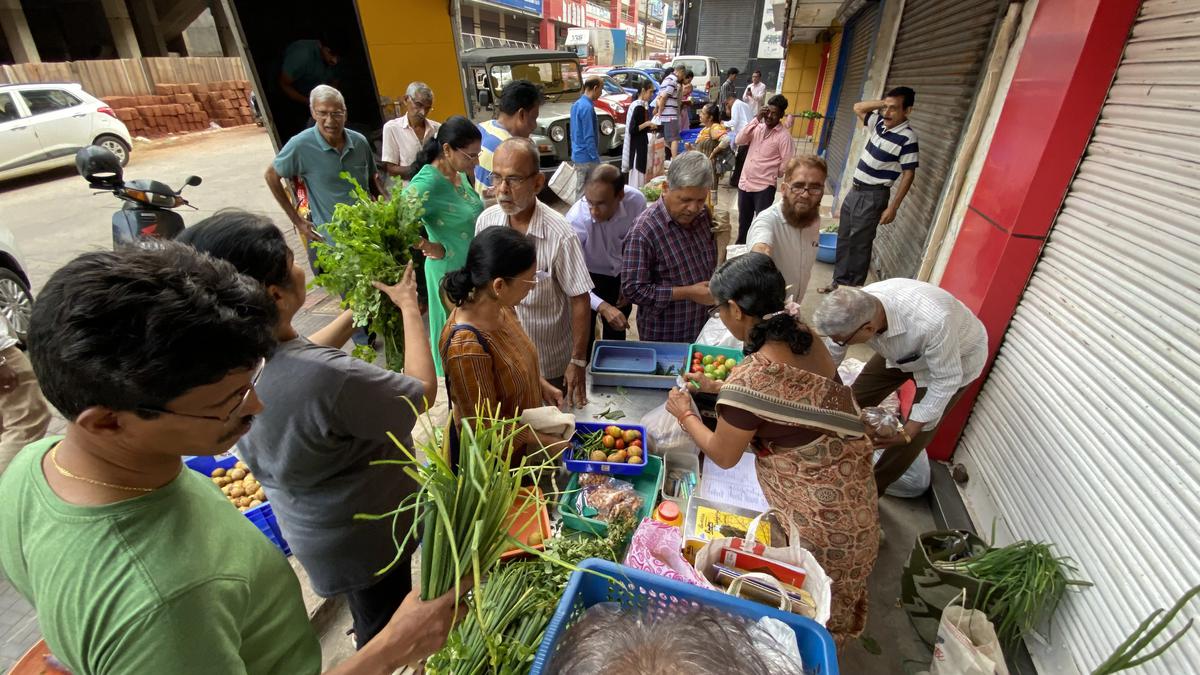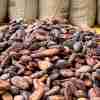
Promoting organic farmers, and produce for a decade, this Mangaluru group has shown the way Premium
The Hindu
Come Sunday, K. Ramanna, a farmer from Kanarpa village, near Mundaje in Dakshina Kannada district, gets up at 4.15 a.m. and drives his four-wheeler to Mangaluru which is about 80 k.m. away. The vehicle is full of vegetables cultivated organically by him and some other farmers known to him in the village. He sells them at the weekly “santhe” (shandy) on Panje Mangesh Rao Road in the central business district of Mangaluru between 6 a.m. and 10.30 a.m. This is his routine for a decade.
Come Sunday, K. Ramanna, a farmer from Kanarpa village, near Mundaje in Dakshina Kannada district, gets up at 4.15 a.m. and drives his four-wheeler to Mangaluru which is about 80 k.m. away. The vehicle is full of vegetables cultivated organically by him and some other farmers known to him in the village. He sells them at the weekly “santhe” (shandy) on Panje Mangesh Rao Road in the central business district of Mangaluru between 6 a.m. and 10.30 a.m. This is his routine for a decade.
Savayava Krushika Grahaka Balaga (which is a group of consumers promoting organic farm products) of Mangaluru has been organising this Sunday santhe since 2013. It is the shandy, now in its 11th year, launched by consumers who want to keep away from vegetables, fruits and other food products grown or made using chemicals and to create a market for organic farmers to promote them.
K. Ratnakar Kulai, one of the people behind the launch of this market and who is also the Secretary of the Balaga, a registered body, told The Hindu, “People like me and Addor Krishna Rao began this in 2012 as ‘swavalambi santhe’ to promote home-made products without making any distinction as organic or chemical-based products. We organised 12 “swavalambi santhes”, one per month at different locations, including in some houses, in Mangaluru during 2012. Then we observed that consumers’ interest was more towards purchasing organic products. Consumers asked for organic vegetables and other products. The Balaga was formed next year and chose Panje Mangesh Rao Road to hold the shandy on the roadside to promote the sale of only organic vegetables and other organic products.”
The organic market did not stop during the pandemic and they continued it by obtaining permission from the Deputy Commissioner, recalled Kulai.
Not all farmers are allowed to sell their produces under the tag of “organic” in the shandy. The Balaga has formed a four-member team to check whether the farmer can be allowed to sell the produce and is indeed an organic grower. The team visits the house/farm of such seller to ascertain the authenticity. “After the screening, 18 farmers now have been allowed to sell their produces on Sundays,” Mr. Kulai said adding that all of them don’t turn up every Sunday and they sell whenever they have produce.
“We did send back six sellers from the market after finding that they are not genuine. One of them was found purchasing chilly from the open market and trying to sell in our shandy. Those six persons have not been allowed to return,” Mr. Kulai said.
A. A. Fazal, a retired Professor of Food Technology, College of Agriculture, Hassan, is a permanent consumer of the produces sold at the santhe. Earlier, he also served as the Secretary of the Balaga for three years. “There is no doubt about the authenticity of the produces sold at the market. We as a team did visit the farms and houses of growers and interacted with them before allowing in the market. We are aware of what is happening in the name of organic in some other places,” he said.













